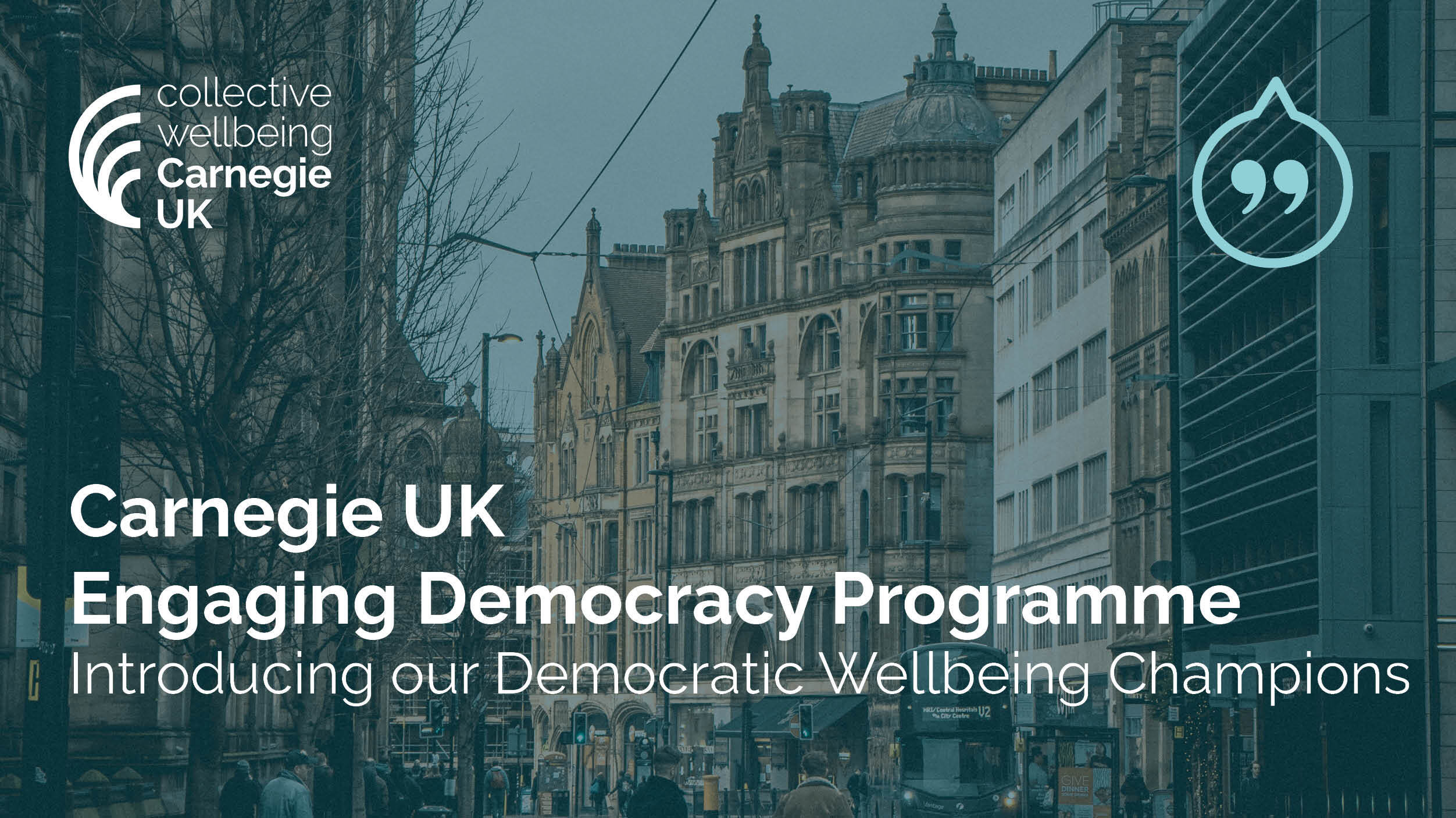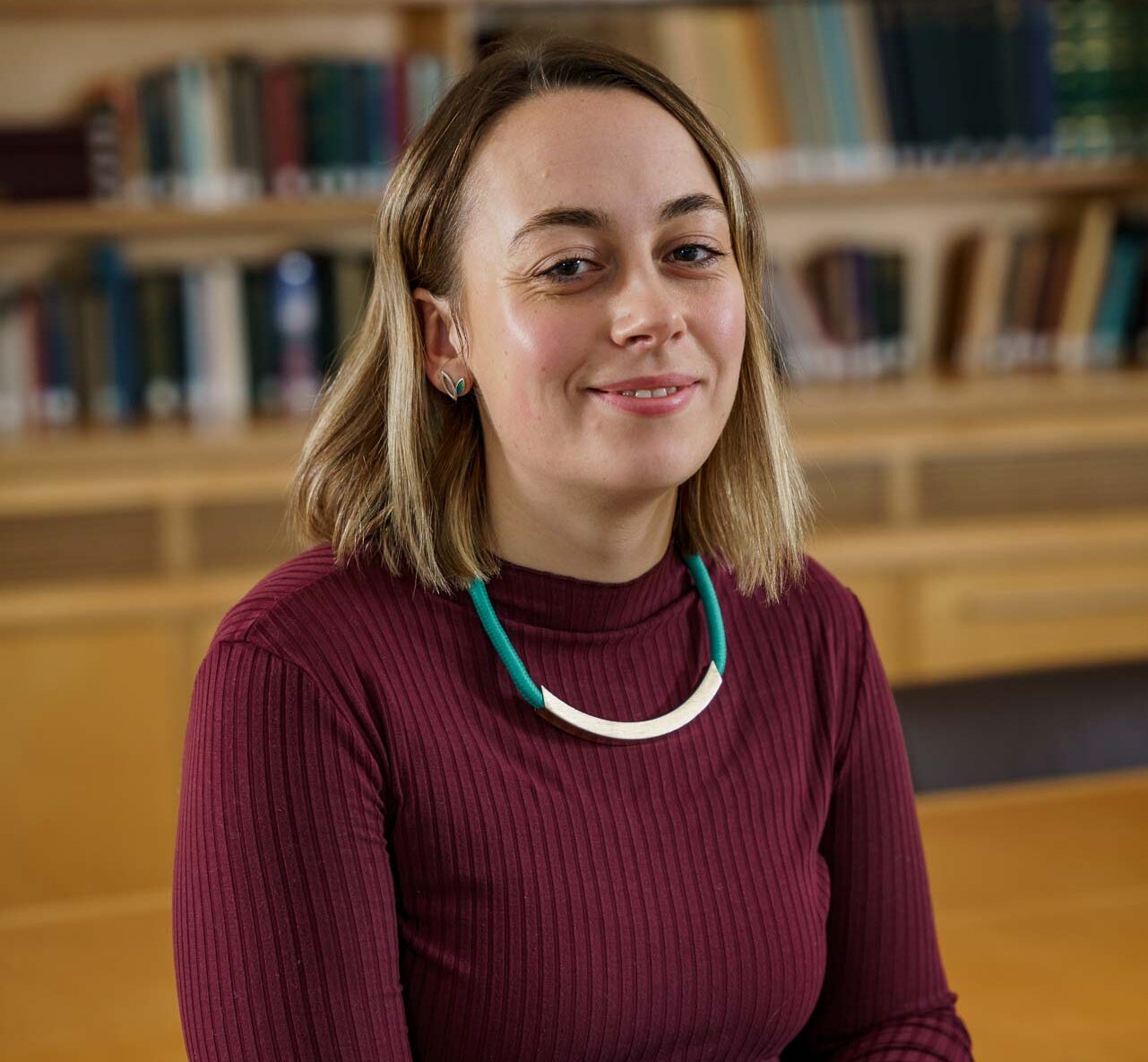New Carnegie UK project seeks to measure impact of democratic participation

- by Hannah Paylor, Carnegie UK
- 31 October 2023
- 2 minute read
At Carnegie UK, we have been exploring the relationship between participatory democracy and institutions charged with enacting change. How to go about designing and delivering participatory democratic initiatives (like citizen assemblies, citizen panels, and participatory budgeting) is increasingly well understood. Less well known is what happens once they conclude and how these projects contribute to change and our collective wellbeing.
Democracy cannot be ‘done to’ people, it has to be done by and with them. But trust in institutions – like government, our legal system, the news, social media, health services and the police – is a hugely influential factor. And right now, it’s undermining people’s interest in and motivation to participate.
Democracy is in crisis. We’ve known this for some time. But voter turnout in the recent Rutherglen (37%) and Tamworth (36%) by-elections provides yet more evidence that our system is not working for people up and down the country. When just under two-thirds of constituents in these two elections declined the opportunity to have their say in an outcome that will ultimately impact their lives, we must question: is this system fit for purpose?
As part of this exciting programme of work, in September we issued an open call to establish a group of ‘Democratic Wellbeing Champions’ from anywhere in the UK. As an organisation invested in the collective impact of alliances, we are committed to building coalitions to tackle wellbeing injustices and change systems. Our group of champions is an opportunity to do just that, as well as ensure our thinking is challenged.
We’re pleased to announce that our champions are:
Mohammed Afridi, Civic Power Fund
Pam Barrett, Better Places (Formerly Be Buckfastleigh)
Madeleine Beveridge, University of Glasgow
Peter Brierley, Citizens UK
Lucy Bush, DEMOS
Sarah Castell, Involve
Seth Farsides, Sheila McKechnie Foundation
Jeannie McCann, Strategic Investment Board
Jane Morrison, individual capacity
Susan Paxton, Scottish Community Development Centre
Esther Roberton, individual capacity
Charandeep Singh, Sikhs in Scotland
Caroline Tosal, Structural Inequalities Alliance
The Democratic Wellbeing Champions bring diverse experience of influencing, with backgrounds in wellbeing, democracy, community organising, and social change. Over the next few months, we’ll be working in the open, and learning together to better understand what the barriers and enables are to effective participatory democracy.
(Image by Steven Roussel)
Help us make the case for wellbeing policy
Keep in touch with Carnegie UK’s research and activities. Learn more about ways to get involved with our work.
"*" indicates required fields
